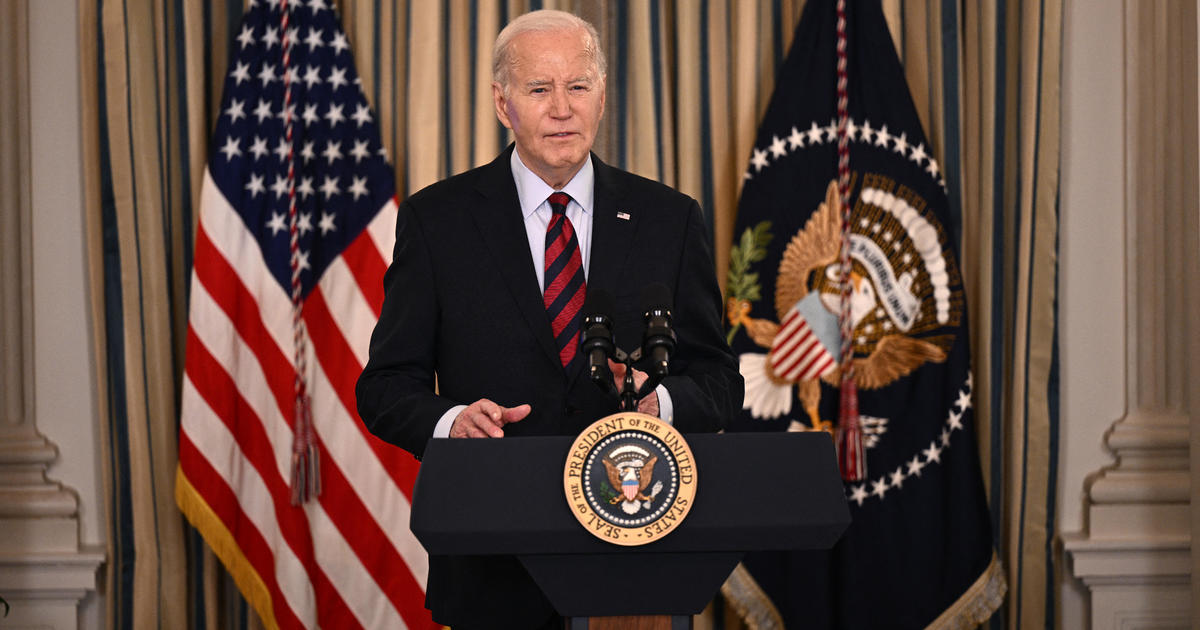Washington — President Biden is set to speak from the White House about a long-sought foreign aid package that provides assistance to Ukraine, Israel and Taiwan, along with a measure that could lead to a ban on TikTok.
The Senate passed the package in a bipartisan vote Tuesday evening, and the president has said he will sign it. The Pentagon plans to send a roughly $1 billion weapons package to Ukraine once it’s signed into law, U.S. officials said earlier in the week.
The White House first sought the foreign aid more than six months ago, kicking off a turbulent path to passage that at times looked doomed amid conservative opposition to Ukraine aid. But the $95 billion package ultimately saw wide bipartisan margins of support. And after an unexpected turn from House Speaker Mike Johnson, the House approved the legislation over the weekend.
The package includes $60.8 billion in aid for Ukraine; $26.4 billion to support Israel, along with humanitarian aid for Gaza; and $8.1 billion for allies in the Indo-Pacific. The legislation also features provisions to allow the sale of frozen assets of Russian oligarchs and a measure that could ban TikTok if it isn’t sold within a year.
Although many congressional Republicans had opposed aid to Ukraine without addressing domestic border security, enough members ultimately coalesced behind the aid in both chambers to join with Democrats to approve the assistance without immigration provisions. A bipartisan group of senators worked for months to negotiate border security reforms to accompany the aid. But that agreement fell apart after former President Donald Trump urged GOP lawmakers to reject the deal.
After the aid package with border security components fell short, the Senate passed the assistance on its own. But Johnson blocked the bill from being brought up in the House, saying that the lower chamber would find its own path forward.
Ultimately, the aid package, which the House passed in four separate bills before it was sent to the Senate as a single passage, closely resembles what the Senate approved months ago. But it did include provisions to make it more palatable to Republicans, like offsetting the Ukraine aid with a partial loan structure and allowing the sale of Russian oligarch’s frozen assets.
The TikTok provision came as a late addition to the foreign aid, after the House had approved a standalone bill earlier in the year. The widely popular video-sharing app, which is owned by a China-based company, has been under fire by U.S. officials in recent years amid warnings that China’s government could gain access to its data and use it to spy on or manipulate Americans. But the standalone bill that could lead to a ban of the app faced some headwinds in the Senate.
The final TikTok provision included in the foreign aid package would force TikTok’s parent company to sell the app within a year, a deadline which will notably come after November’s election and is an extension from the initial House bill. Despite pushback from some young voters and a lobbying campaign against the move by TikTok, key opposition to the provision ultimately dissipated.
